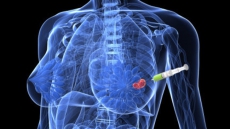People with high levels of "inflammatory marker" proteins released into the blood in response to infection are at greater risk of developing depression and psychosis, says a study.
It indicates that mental illness and chronic physical illness such as coronary heart disease and type-2 diabetes may share common biological mechanisms.
"Inflammation may be a common mechanism that influences both our physical and mental health," said senior study author Peter Jones, a professor at University of Cambridge.
When we are exposed to an infection, for example influenza or a stomach bug, our immune system fights back to control and remove the infection.
During this process, immune cells flood the blood stream with proteins such as interleukin-6 (IL-6), a tell-tale marker of infection.
However, even when we are healthy, our bodies carry trace levels of these proteins - known as "inflammatory markers" which rise exponentially in response to infection.
"It is possible that early life adversity and stress lead to persistent increase in levels of IL-6 and other inflammatory markers in our body, which, in turn, increase the risk of a number of chronic physical and mental illness," Jones added.
The researchers studied a sample of 4,500 individuals from the "Avon Longitudinal Study of Parents and Children" - also known as "Children of the 90s" - taking blood samples at age nine and following up at age 18 to see if they had experienced episodes of depression or psychosis.
The team divided the individuals into three groups, depending on whether their everyday levels of IL-6 were low, medium or high.
The children in the "high" group were nearly two times more likely to have experienced depression or psychosis than those in the "low" group, the findings showed.
The study appeared in the journal JAMA Psychiatry.





